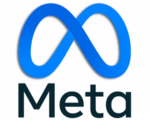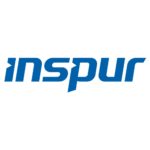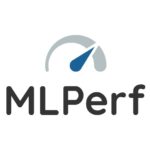New York – March 28, 2024 – Lightning AI today announced the availability of Thunder, a source-to-source compiler for PyTorch designed for training and serving the latest generative AI models across multiple GPUs. Thunder is the culmination of two years of research on the next generation of deep learning compilers, built with support from NVIDIA. […]
Habana Labs and Grid.ai Collaborate for Training on Gaudi with PyTorch Lightning
April 7, 2022 — The Habana team announced it is collaborating with Grid.ai to make it easier for developers to train on Gaudi processors with PyTorch Lightning without code changes. Grid.ai and PyTorch Lightning make coding neural networks simple. Habana Gaudi makes it cost efficient to train those networks. The integration of Habana’s SynapseAI software suite […]
NAG Delivers Machine Learning Guidance via New Azure HPC + AI Collaboration Centre
23 February 2021 – Oxford, UK: The Numerical Algorithms Group (NAG) will provide machine learning guidance to Microsoft Azure users via the new Azure HPC & AI Collaboration Centre. In partnership with NVIDIA, this new centre will develop best practices for the deployment of scalable machine learning in the Cloud. “Microsoft and NVIDIA innovation around […]
Inspur Re-Elected as Member of SPEC OSSC and Chair of SPEC Machine Learning
The Standard Performance Evaluation Corporation (SPEC) has finalized the election of new Open System Steering Committee (OSSC) executive members, which include Inspur, Intel, AMD, IBM, Oracle and three other companies. “It is worth noting that Inspur, a re-elected OSSC member, was also re-elected as the chair of the SPEC Machine Learning (SPEC ML) working group. The development plan of ML test benchmark proposed by Inspur has been approved by members which aims to provide users with standard on evaluating machine learning computing performance.”
New MLPerf Benchmark Measures Machine Learning Inference Performance
Today a consortium involving over 40 leading companies and university researchers introduced MLPerf Inference v0.5, the first industry standard machine learning benchmark suite for measuring system performance and power efficiency. “Our goal is to create common and relevant metrics to assess new machine learning software frameworks, hardware accelerators, and cloud and edge computing platforms in real-life situations,” said David Kanter, co-chair of the MLPerf inference working group. “The inference benchmarks will establish a level playing field that even the smallest companies can use to compete.”
Scalable and Distributed DNN Training on Modern HPC Systems
DK Panda from Ohio State University gave this talk at the Swiss HPC Conference. “We will provide an overview of interesting trends in DNN design and how cutting-edge hardware architectures are playing a key role in moving the field forward. We will also present an overview of different DNN architectures and DL frameworks. Most DL frameworks started with a single-node/single-GPU design.”
Deep Learning and Automatic Differentiation from Theano to PyTorch
Inquisitive minds want to know what causes the universe to expand, how M-theory binds the smallest of the small particles or how social dynamics can lead to revolutions. “The way that statisticians answer these questions is with Approximate Bayesian Computation (ABC), which we learn on the first day of the summer school and which we combine with High Performance Computing. The second day focuses on a popular machine learning approach ‘Deep-learning’ which mimics the deep neural network structure in our brain, in order to predict complex phenomena of nature.”









